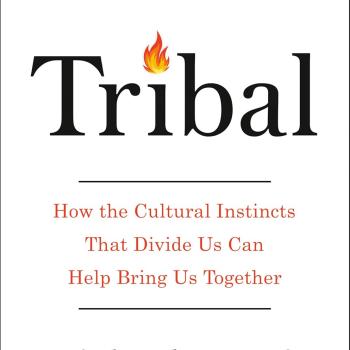From beginning to end, the Bible primarily talks about groups, not individuals.
This is another reason why we should reconsider our traditional methods of evangelism. As I’ve said throughout this series, our typical use of the Adam story breeds an individualism that may not serve those with whom we speak.
Click on the following for Part One, Part Two, Part Three, Part Four, Part Five of the series.
I want to focus on a particular advantage we gain by starting with the group (collective identity) rather than the individual (most usages of Adam). This approach more naturally fits the way the Bible tells its own story.
I’ll illustrate this point in three ways.
The Literary Framework of Genesis 12
Genesis 12 is foundational to the entire Bible.
I sometimes tell students that if one does not grasp the significance of Gen 12, he or she can hardly understand the central story of the Bible. If you think I exaggerate, then simply consider Galatians 3:8, where Paul cites the promise of Gen 12:3, calling it the “gospel.”
Genesis 12:1-3 says,
Now the LORD said to Abram, “Go from your country and your kindred and your father’s house to the land that I will show you. And I will make of you a great nation, and I will bless you and make your name great, so that you will be a blessing. I will bless those who bless you, and him who dishonors you I will curse, and in you all the families of the earth shall be blessed.”
Genesis 12 directly links to the prior context, particularly Chapters 1 and 11. Whereas the nations in Gen 11 take the initiative to make a name for themselves (11:4), it is God who covenants to make a great name for Abraham. It is through this man that God will bless all the nations in Gen 11.
Accordingly, Gen 12 recalls God’s original design for the world — blessing. Abraham would become the means by which God will restore the human family. This family would consist of all nations.
This is a story about what God does with groups (fallen nations) in order to form a group (a family consisting of all nations).
Israel (vs. everyone else) is basic to the story
In addition, we should note the fundamental way in which biblical writers categorize the world. Again and again, the contrast is between Israel and everyone else.
By over stressing the individual, we may subtly undermine this critical observation, effectively nullifying the significance of much of the canon. I’m not just talking about the Old Testament. We could mention New Testament passages like Galatians 3 and Romans 4, which focus on the question of who belongs to Abraham’s one family.
Our Final Hope is Collective
Individualistic Christianity lays weight on the fact that we must leave father and mother to follow Jesus. The problem however is that the prior statement (concerning the cost of discipleship) is only half the story. Jesus also entices us to follow him with the promise of a much larger family in this age and in the one to come (cf. Mark 10:29-31).
We are not merely saved from death and judgment; we are also not saved merely to join God in his mission. In fact, when the mission is done and Christ has returned, we shall discover afresh that we are saved for membership in his family (i.e. a group).
Once again, we see that the church plays an important role in the gospel story. The Church is not merely the inevitable consequence of individuals believing the truth. It the one of the overt aims of the gospel (cf. Ephesians 2:11ff).
I’ve heard many times people speak about the “mansion” that each of us will get “in heaven.” That sounds depressing…..living isolated and lonely lives. We are not saved in order that we can then be alone for eternity.
Love is group activity.
















